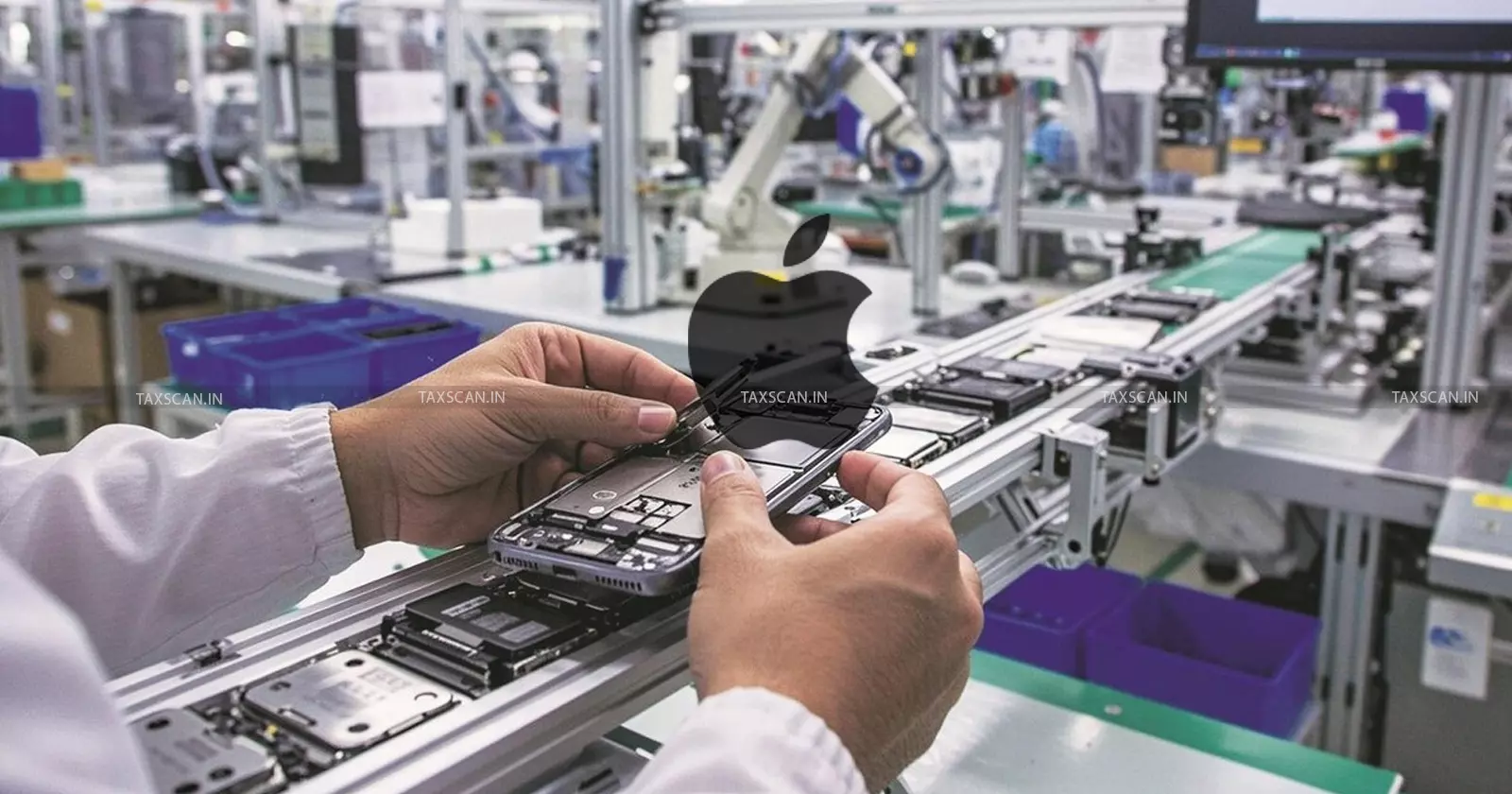Apple Pushes for Major Overhaul of India’s Tax Laws to Protect Billion-Dollar Investments in iPhone Manufacturing, Citing Risks to Expansion and Shift Away from China
The lobbying effort comes at a delicate moment for Prime Minister Narendra Modi's government, which has made smartphone manufacturing a cornerstone of its economic policy through initiatives like the Production Linked Incentive scheme

Apple has entered a high-stakes standoff with the Indian government over the Income Tax Act of 1961, a decades-old law that could make its global iPhone profits taxable in India simply because the company owns high-end manufacturing machines used by its local partners by putting billions of dollars in investments and its China-diversification strategy at risk. The California-based company has been quietly lobbying New Delhi to amend provisions in the Income Tax Act of 1961 that treat foreign ownership of manufacturing equipment as a "business connection", a classification that could make Apple's global iPhone profits taxable in India. The issue has emerged as a critical roadblock just as Apple accelerates its strategy to diversify production away from China, with India now accounting for a quarter of all global iPhone shipments.
At the heart of the dispute is Apple's long-standing practice of purchasing and owning the specialized, high-end machinery required for iPhone assembly, then providing it to contract manufacturers like Foxconn and Tata Electronics. In China, where Apple produces three-quarters of its iPhones, this arrangement works seamlessly without triggering local tax obligations. But India's decades-old tax code interprets such ownership differently, potentially exposing Apple to what tax experts describe as "billions in tax exposure" based on the company's global revenue attributable to Indian operations.
"Contract manufacturers cannot put up money beyond a point," explained an industry insider familiar with the discussions. "If the legacy law is changed, it will become easy for Apple to expand. India can become more competitive globally".
The stakes couldn't be higher for both parties. Apple's contract manufacturers have already invested over Rs 5,000 crore in manufacturing infrastructure across five factories in Tamil Nadu and Karnataka. In fiscal year 2025 alone, Apple produced $22 billion worth of iPhones in India, with 80 percent exported to markets worldwide. iPhone's market share in India has doubled to eight percent since 2022, while the country's share of global iPhone production has surged fourfold to 25 percent during the same period.
Tax experts point to a 2017 Supreme Court ruling involving Formula One as a worrying precedent for Apple. The court held that even though Formula One didn't own the Buddh International Circuit near New Delhi, it was liable to pay tax in India because it exercised full control over the venue during its Grand Prix event. Legal analysts warn that if Apple owns machinery inside Indian iPhone factories, tax authorities could apply similar reasoning, arguing that such ownership constitutes control and creates a taxable presence.
"If the activities of Apple constitute a business connection, then the global revenue may be used as a basis to compute the income attributable in India, leading to billions in tax exposure," said Riaz Thingna, partner at Grant Thornton Bharat.
The lobbying effort comes at a delicate moment for Prime Minister Narendra Modi's government, which has made smartphone manufacturing a cornerstone of its economic policy through initiatives like the Production Linked Incentive scheme. Between fiscal 2023 and 2025, the government disbursed Rs 2,068 crore in incentives to Tata Electronics and Rs 2,807 crore to Foxconn. Yet officials remain cautious about changing tax laws that could weaken India's sovereign right to tax foreign companies operating within its borders.
"It's a tough call," acknowledged a senior government official. "India needs investments. We have to find a solution".
The India Cellular and Electronics Association, which represents Apple and other global firms, has privately urged the government to update the law, emphasizing that "tax certainty is paramount for businesses seeking to expand and scale". The industry body noted that contract manufacturers are often "unable or unwilling to invest in such large quantities of specialized equipment" that can cost billions of dollars, with some equipment even supplied free by parent companies.
Under the Income Tax Act, 1961, Apple faces potential tax exposure because Section 9 treats ownership of manufacturing equipment in India as creating a “business connection.” This means even if Apple does not own factories, simply supplying and owning iPhone assembly machinery used by Indian contract manufacturers (like Foxconn or Tata) could make Apple’s global iPhone profits taxable in India.
However, the new Income Tax Act, 2025, which comes into effect on 1 April 2026, aims to simplify and modernize India’s tax regime. It removes outdated interpretations, adds clarity on what constitutes “significant economic presence,” and reduces litigation by defining taxable relationships more precisely. Once the 2025 Act takes effect, the law is expected to bring greater tax certainty for multinational digital firms and manufacturers like Apple by differentiating between ownership for quality control versus active business operations in India.
In short, the 1961 Income Tax Act exposes Apple to tax on equipment ownership, while the upcoming 2025 Act is designed to minimize such ambiguities by potentially shielding Apple from billions in liabilities linked to its India-based but globally managed manufacturing ecosystem.
As discussions continue between Apple executives and Indian authorities, the resolution of this tax dispute will likely determine whether India can truly emerge as a viable alternative to China in Apple's global supply chain.
Support our journalism by subscribing to Taxscan premium. Follow us on Telegram for quick updates


